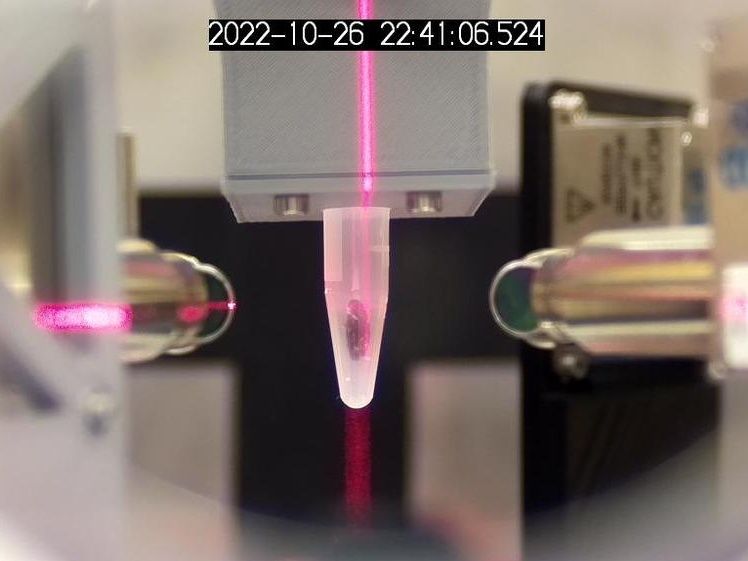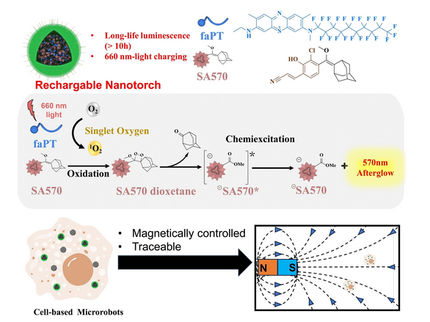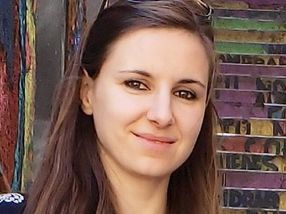Innovation Award awarded for breakthrough in X-Ray Fluorescence Tracking for Medical Imaging
Florian Grüner from the University of Hamburg receives the Innovation Award for Synchrotron Radiation
Grüner, professor at the University of Hamburg and at the Center for Free-Electron Laser Science (CFEL), a cooperation between DESY, the University of Hamburg and the Max-Planck-Gesellschaft, has been honored for advancements in the field of in-situ and in-vivo tracking using advanced X-ray fluorescence imaging (XFI). His pioneering work paves the way for the precise tracking of active ingredients, as well as immune cells, antibodies, and drug carriers, enabling real-time assessment of biodistribution in the human body and providing invaluable insights for medical research.

Experimental setup for XFI measurements.
UHH, Florian Grüner
The key breakthrough achieved by Florian and his team lies in the development of a synchrotron-based precision tracking method that allows for the detection of the smallest tumors or the tracking of drugs or cells in living organisms. This cutting-edge approach holds a significant potential for pharmaceutical research, drug development, and even the study of biological effects of pollution with Nano or micro plastics. Additionally, the enhanced method holds the promise of significantly reducing the number of animals needed in pre-clinical trials, due to being a non-invasive process so that the biodistribution could be tracked at different points in time.
X-ray fluorescence has been widely used at synchrotrons, but to this point could not be used for non-invasive detection of small quantities of elements in thicker samples. Now, Grüner and his team have overcome these limitations and paved the way for studying biodistributions of various entities in-situ and in-vivo. or this purpose, the entities to be traced must be marked with suitable elements, e.g. iodine atoms.
The pilot-study conducted at DESY's Synchrotron PETRA III, in collaboration with the University Clinic in Hamburg-Eppendorf (UKE), focused on tracking the migration of immune cells in Crohn’s disease mice models. The results showcased the first-ever in-vivo synchrotron-based XFI Crohn’s disease tracking of macrophages, a class of white blood cells, in living mice. Building upon these insights, two additional pilot-studies have been initiated, involving the tracking of mRNA-nanoparticle carriers and pharmacokinetics of an anti-cancer drug compound in tumor mouse models, respectively. Furthermore, Florian Grüner and his team are currently planning a third pillar of research, exploring the possibilities of tracking antibodies and even virus particles.
Helmut Dosch, Chairman of DESY’s board of directors: “This research exemplifies the transformative potential of large-scale research infrastructure, such as synchrotron radiation facilities, in addressing societal challenges and driving breakthroughs in health-related research. The contributions by Florian Grüner and his team have not only made an indelible impact on the scientific community but also offer a glimpse into the future of medication development and therapy advancements.”
Most read news
Organizations
Other news from the department people

Get the analytics and lab tech industry in your inbox
By submitting this form you agree that LUMITOS AG will send you the newsletter(s) selected above by email. Your data will not be passed on to third parties. Your data will be stored and processed in accordance with our data protection regulations. LUMITOS may contact you by email for the purpose of advertising or market and opinion surveys. You can revoke your consent at any time without giving reasons to LUMITOS AG, Ernst-Augustin-Str. 2, 12489 Berlin, Germany or by e-mail at revoke@lumitos.com with effect for the future. In addition, each email contains a link to unsubscribe from the corresponding newsletter.





























































